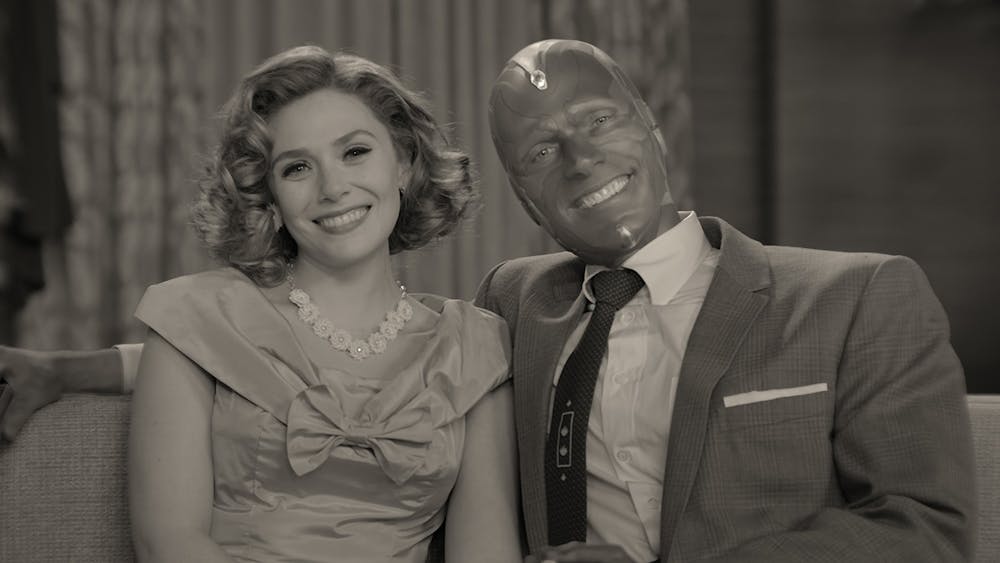It’s safe to say that 2020 was not a great year for Marvel Studios. The feature films they were planning to release — “Eternals” and “Black Widow” — were both delayed by a year due to the coronavirus pandemic.
The only content that did come out was the seventh season of “Agents of S.H.I.E.L.D.,” which had its lowest ratings yet, and a new show titled “Helstrom,” which was critically panned.
In many ways, “WandaVision,” which was released on Disney+ on Jan. 15, is a new start for Marvel Studios. Not only is it the studio’s first original series to be released on Disney+, it’s also the beginning of Phase Four for the Marvel Cinematic Universe. If the show turned out bad, it wouldn’t bode well for its upcoming projects.
Having seen the first two episodes, I think Marvel Studios can rest easy.
“WandaVision” follows Wanda Maximoff and Vision as they adjust to living in the suburbs after the events of “Avengers: Endgame.” Wanda, an Avenger with broad magical powers, now fulfills the role of dutiful housewife. Vision, an android created by an artificial intelligence, now works a normal job that he is very good at but doesn’t understand.
The show cycles through various styles referencing sitcoms of the past, with the first episode emulating black-and-white sitcoms from the 50s and 60s like “The Dick Van Dyke Show.” It goes so far as to shoot the episode in front of a live studio audience.
I must confess, I wasn’t looking forward to “WandaVision.” I never found either character particularly interesting in the Avengers movies, and the idea of them starring in a show frankly didn’t appeal to me. So I was pleasantly surprised when I watched the show and became genuinely invested in the two of them.
The main thing “WandaVision” gets right is the balance between staying faithful to the characters’ previously established personalities and adapting them to fit the television format. Neither Wanda nor Vision were all that funny in the movies, so changes were going to be necessary if the show was to be a sitcom. The execution is ultimately very successful, and the actors are a big part of that.
Elizabeth Olsen and Paul Bettany both do great work as Wanda and Vision, to a degree I wasn’t expecting. Both of them have a strong grasp of the show’s comedic tone, something that is very clear when watching their performances. The two are consistently funny, and they’re especially adept with physical comedy. I was regularly laughing during the first two episodes, and I can only hope the remaining ones are nearly as solid.
The choice to make “WandaVision” in the style of a classic sitcom could have been little more than a gimmick meant to attract an audience with the promise of something different, but the show really commits to it. The sets and costumes look like they were taken straight out of the 50s, and the rhythm of the characters’ speech was perfectly designed to accommodate the laughter of the audience. It doesn’t feel at all half-baked, and it’s clear a lot of thought went into the details.
The style had been my biggest concern before watching “WandaVision.” It was fun for the first episode, but I was scared that it would become kind of annoying if it was done for an entire season. Thankfully, the second episode has a style more in line with sitcoms from later decades in order to prevent the gimmick from growing stale.
I really enjoyed the first two episodes of “WandaVision.” I wasn’t expecting much, and I wound up getting a strong introduction to a show with a lot of potential. I recommend it to Marvel fans who have been eagerly awaiting new content and anyone who enjoys classic sitcoms.




